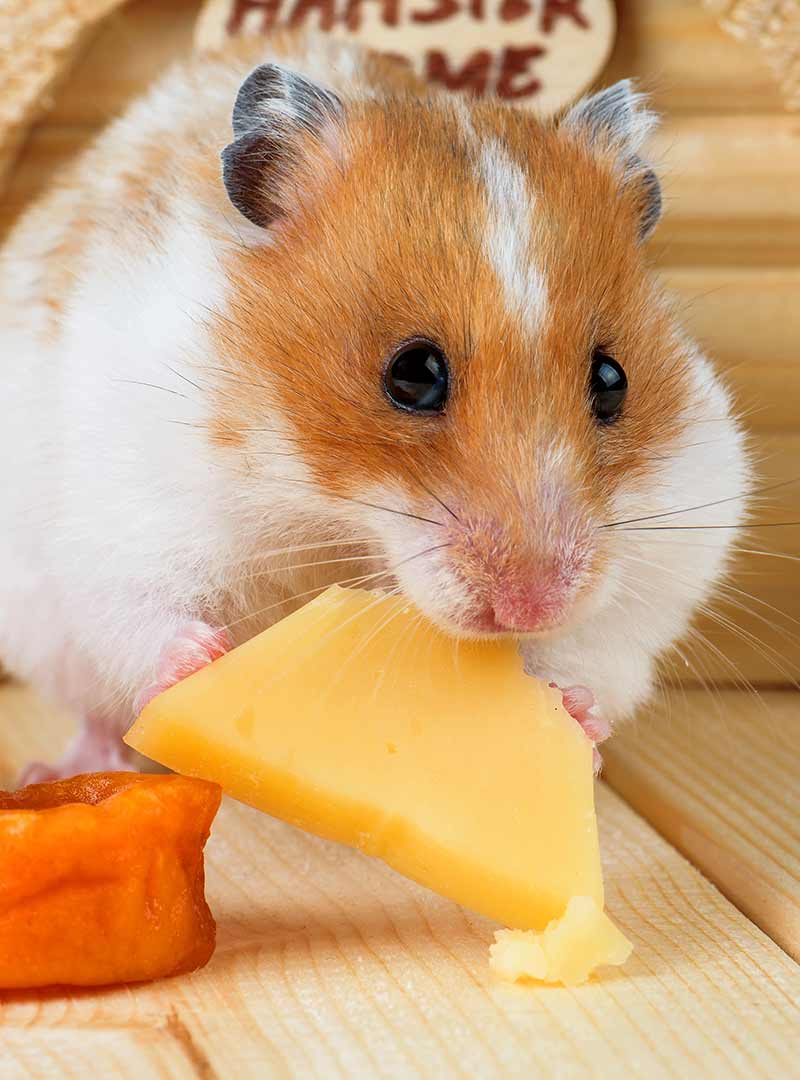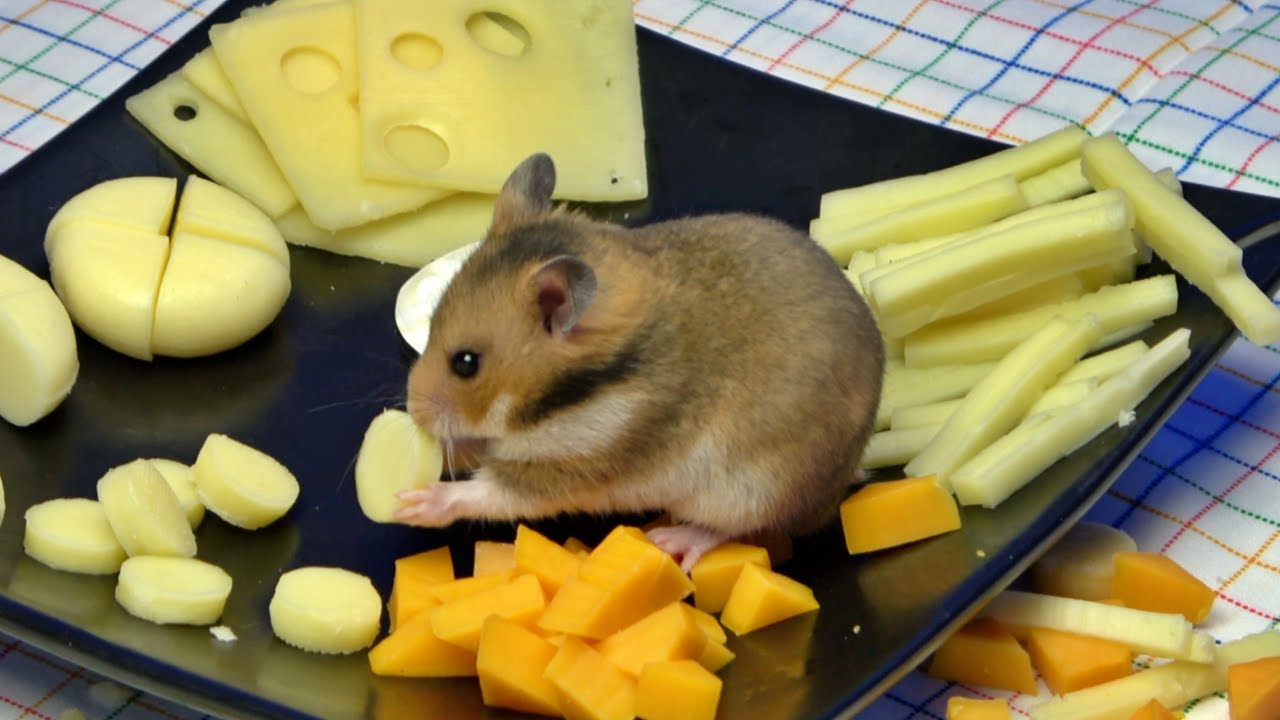Can Hamsters Eat Cheese: A Complete Guide
Introduction
Hamsters are adorable little creatures that make great pets. As a responsible pet owner, it’s important to provide them with a balanced and nutritious diet. One common question that often arises is whether hamsters can eat cheese. In this article, we will explore the topic in detail and provide you with all the information you need to know about feeding cheese to your furry friend.

Can Hamsters Eat Cheese?
The short answer is yes, hamsters can eat cheese. However, it’s important to understand that cheese should only be given to hamsters in moderation. While cheese can be a good source of protein and calcium for humans, hamsters have different dietary requirements. Feeding them too much cheese can lead to health issues such as obesity and digestive problems.
The Nutritional Value of Cheese for Hamsters
Cheese is a dairy product that contains various nutrients beneficial to humans. However, hamsters have different nutritional needs, and cheese should be considered as an occasional treat rather than a staple food. Cheese is high in fat and protein, which can be beneficial for hamsters in small amounts. It also contains calcium, which is essential for their bone health.
Choosing the Right Cheese for Your Hamster
Not all types of cheese are safe for hamsters to consume. Some varieties may contain ingredients that are harmful to them. It’s important to choose a cheese that is low in salt and does not contain any additives or flavorings. Fresh, natural cheeses like cheddar or mozzarella are generally safe options for hamsters. However, it’s always best to consult with a veterinarian before introducing any new food into your hamster’s diet.
How Much Cheese Should You Feed Your Hamster?
When it comes to feeding cheese to your hamster, moderation is key. A small piece of cheese, about the size of your hamster’s paw, once or twice a week is sufficient. Remember, hamsters have tiny stomachs, and overfeeding them can lead to obesity and other health problems. It’s important to provide a balanced diet that includes a variety of fresh fruits, vegetables, and specially formulated hamster pellets.
Potential Risks and Precautions
While cheese can be a tasty treat for your hamster, there are a few risks and precautions to keep in mind. Some hamsters may be lactose intolerant, which means they cannot digest lactose, a sugar found in milk and dairy products. Feeding cheese to a lactose-intolerant hamster can cause digestive upset and diarrhea. It’s important to observe your hamster’s reaction after feeding them cheese and discontinue if any adverse symptoms occur.
Conclusion
In conclusion, hamsters can eat cheese, but it should be given in moderation. Cheese can provide some nutritional benefits to hamsters, but it should not replace their regular diet. Always choose natural, low-salt cheeses and consult with a veterinarian before introducing any new food into your hamster’s diet. Remember, a balanced and varied diet is essential for your hamster’s overall health and well-being.
FAQs
- Can hamsters eat other dairy products besides cheese?
While cheese can be given to hamsters in moderation, other dairy products like milk or yogurt are not recommended. Hamsters have difficulty digesting lactose, which is present in these products. - What are some alternative treats for hamsters?
Hamsters can enjoy a variety of fruits and vegetables as treats. Some safe options include apples, carrots, and broccoli. Always introduce new foods gradually and in small amounts. - Can hamsters eat cheese rinds?
It’s best to avoid feeding hamsters cheese rinds. The rinds can be tough and difficult for them to chew and digest. Stick to the softer parts of the cheese. - Are there any cheeses that are toxic to hamsters?
Yes, certain types of cheese, such as blue cheese or those with added spices or herbs, can be toxic to hamsters. Stick to natural, unflavored cheeses to ensure their safety. - Can hamsters eat cheese every day?
No, hamsters should not eat cheese every day. It should be given as an occasional treat, and their diet should primarily consist of hamster pellets, fresh fruits, and vegetables.

